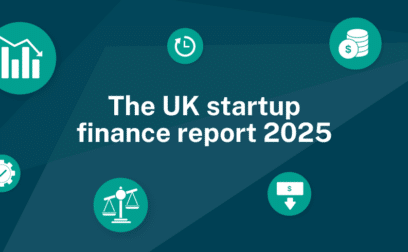Definition
ROI stands for return on investment. It is a financial metric used to evaluate the profitability or efficiency of an investment.
What is return on investment?
ROI measures the gain or loss generated from an investment relative to the amount of money invested. It is expressed as a percentage.
Here’s how ROI is calculated:
ROI = (net profit from investment / cost of investment) x 100
Use our return on investment calculator to help you
Here are some key points about ROI:
1. Profitability measure: ROI assesses how effectively an investment is at generating profit. A higher ROI indicates a more profitable investment.
2. Versatility: ROI can be applied to various types of investments, including stocks, real estate, businesses, marketing campaigns, and more.
3. Relative metric: ROI is a relative metric, meaning it provides a comparison between the returns and the initial investment. It doesn’t provide an absolute measure of profitability.
4. Time frame consideration: ROI calculations can be based on different time frames, depending on the nature of the investment. For example, it can be calculated annually, quarterly, or for the entire duration of the investment.
5. Risk consideration: ROI does not account for risk. It doesn’t measure the potential level of risk or the likelihood of achieving the expected return.
6. Decision making Tool: ROI is a valuable tool for investors, businesses, and individuals to evaluate the potential returns of an investment and compare it to other opportunities.
7. Negative ROI: A negative ROI indicates that the investment has resulted in a loss. This could be due to factors like declining asset values or higher expenses.
8. Benchmarking: ROI can be used to compare the performance of different investments or to evaluate the performance of a company’s projects or initiatives.
9. Limitations: While ROI is a useful metric, it doesn’t provide a complete picture. It doesn’t consider the time value of money, the duration of the investment, or the potential impact of inflation.
10. Specific applications:
– Marketing: ROI is commonly used in marketing to assess the effectiveness of advertising campaigns and promotional activities.
– Real estate: Investors use ROI to evaluate the potential returns from commercial properties or property improvements.
Understanding ROI is essential for making informed investment decisions. It helps individuals and businesses assess the potential benefits and risks associated with various investment opportunities. Keep in mind that while ROI is a valuable metric, it should be used in conjunction with other financial analysis tools for a comprehensive evaluation.
Example of return on investment
Let’s say you invested £10,000 in purchasing stocks. After one year, you sold the stocks for £12,000 and received dividends of £500. Additionally, you incurred £200 in transaction fees and other costs related to the investment.
Then we can calculate the ROI:
- Total gains = £12,000 + £500 – £200 = £12,300
- Net profit = £12,300 – £10,000 = £2,300
- ROI = (£2,300 / £10,000) x 100 = 23%
The ROI for this investment is 23%, indicating that for every pound invested, £0.23 of profit was earned.


































 yet? Register here!
yet? Register here!